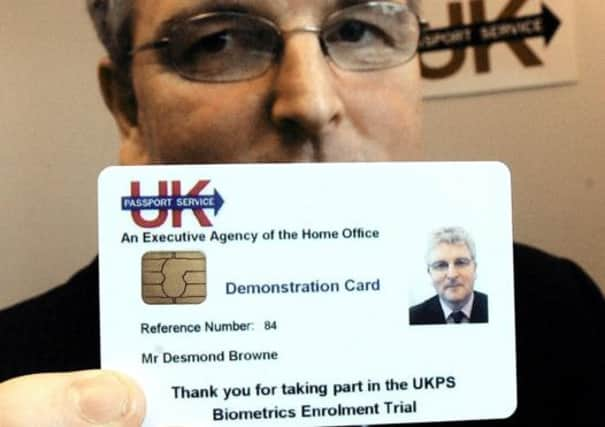SNP’s ID database plan ‘threatens civil rights’


Proposals to expand the National Health Service Central Register will pave the way for a national ID register in Scotland, according to the Open Rights Group (ORG).
The digital rights campaigners claim that the consultation is flawed, misleading and could “fundamentally change the relationship between citizen and state”.
Advertisement
Hide AdAdvertisement
Hide AdORG executive director Jim Killock said: “Government proposals that jeopardise our right to privacy need proper consideration. The SNP rejected a national ID register when the UK government tried to introduce ID cards.
“These proposals could pave the way for a similar scheme in Scotland and are being introduced without a proper debate by the public or MSPs.”
The NHS central register is already the “most complete and authoritative” record of individuals in Scotland and ministers want to extend this and share information with more than 100 government agencies.
The ORG submission warned the consultation did not provide a “full picture”.
“It should be clearer about the implications of what is being proposed – a national ID system,” it stated.
And it added: “There are potential compliance problems with some of the proposals with UK data protection legislation and other information laws.”
But a Scottish Government spokeswoman said there was no proposal for a single database and that its plans were in line with ministers’ “Identity Management and Privacy Principles”.
“We take the security and privacy of this data very seriously indeed, and any sharing would only take place under tightly controlled arrangements,” she said.
SEE ALSO